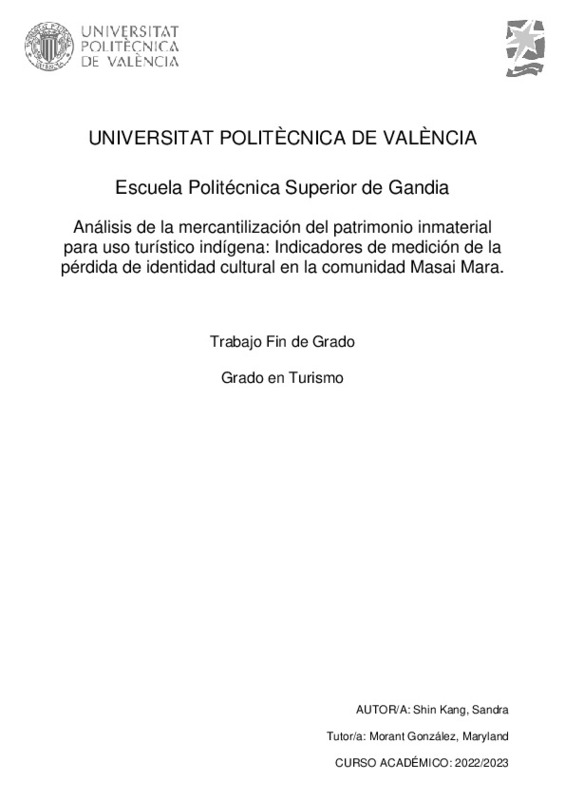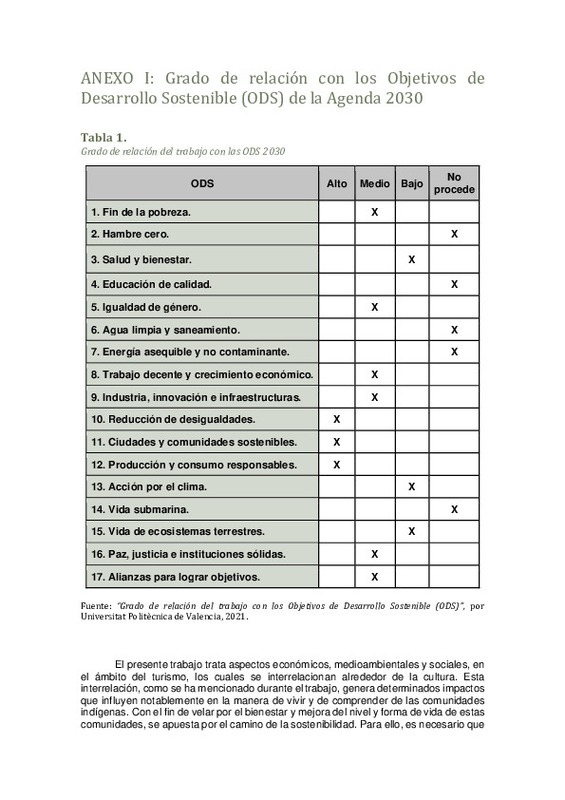JavaScript is disabled for your browser. Some features of this site may not work without it.
Buscar en RiuNet
Listar
Mi cuenta
Estadísticas
Ayuda RiuNet
Admin. UPV
Análisis de la mercantilización del patrimonio inmaterial para uso turístico indígena: Indicadores de medición de la pérdida de identidad cultural en la comunidad Masai Mara.
Mostrar el registro completo del ítem
Shin Kang, S. (2023). Análisis de la mercantilización del patrimonio inmaterial para uso turístico indígena: Indicadores de medición de la pérdida de identidad cultural en la comunidad Masai Mara. Universitat Politècnica de València. http://hdl.handle.net/10251/192517
Por favor, use este identificador para citar o enlazar este ítem: http://hdl.handle.net/10251/192517
Ficheros en el ítem
Metadatos del ítem
| Título: | Análisis de la mercantilización del patrimonio inmaterial para uso turístico indígena: Indicadores de medición de la pérdida de identidad cultural en la comunidad Masai Mara. | |||
| Otro titulo: |
|
|||
| Autor: | Shin Kang, Sandra | |||
| Director(es): | ||||
| Entidad UPV: |
|
|||
| Fecha acto/lectura: |
|
|||
| Resumen: |
[ES] La mercantilización del patrimonio se vincula con la evolución socio-cultural y con el mercado turístico. La producción de mercancías culturales para consumo turístico requiere de la identidad cultural del territorio ...[+]
[EN] The commodification of heritage is linked to socio-cultural evolution and the tourism market. The production of cultural goods for tourist consumption requires the cultural identity of the territory and its intangible ...[+]
|
|||
| Palabras clave: |
|
|||
| Derechos de uso: | Reserva de todos los derechos | |||
| Editorial: |
|
|||
| Titulación: |
|
|||
| Tipo: |
|
Localización
recommendations
Este ítem aparece en la(s) siguiente(s) colección(ones)
-
EPSG - Trabajos académicos [5004]
Escuela Politécnica Superior de Gandia








